1 of 12
Download to read offline

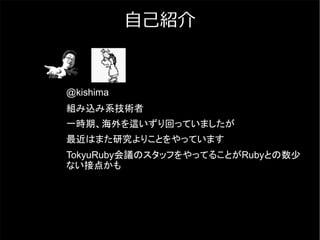
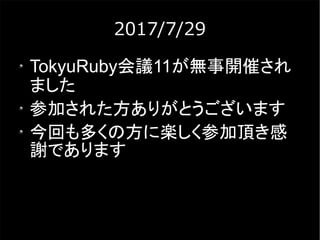
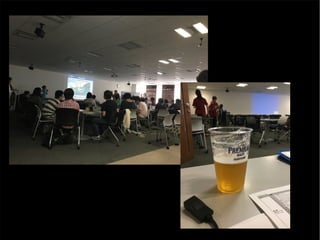
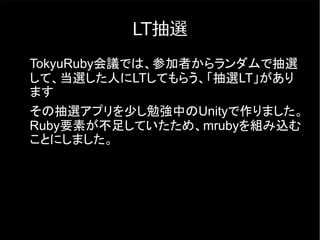
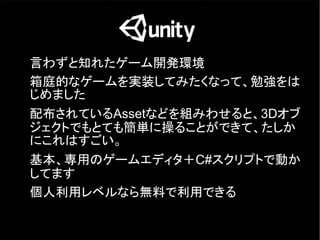
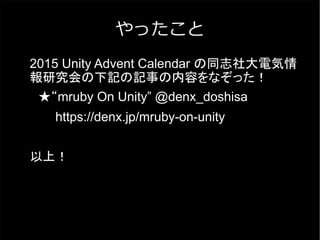
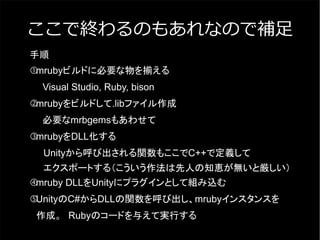
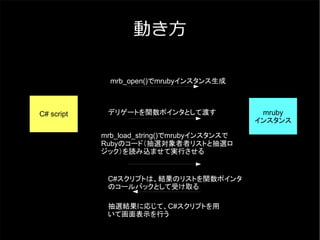

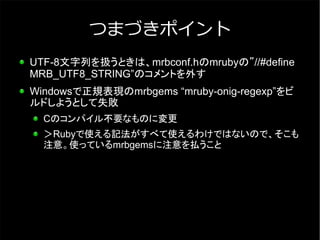

Recommended
【Unity道場スペシャル 2018仙台】Unityでステージをつくるのじゃ



【Unity道場スペシャル 2018仙台】UnityでステージをつくるのじゃUnity Technologies Japan K.K.
?
2018/1/20に開催されたUnity道場スペシャル 2018仙台の講演スライドです。
講師:山村 達彦(ユニティ?テクノロジーズ?ジャパン合同会社)
Unityでステージを作るとき、Cubeを引き伸ばしてステージを作ってませんか? アセットストアでモデルを購入した後に、ストレージの肥やしになっていませんか? このセッションでは、Unityのシーン編集機能を活用して、モデルを効率的に配置する方法や、ステージをより綺麗に表現するためのライティングの設定について紹介します。
こんな人にオススメ
?Unityで3Dゲーム向けステージを作りたい人
得られる知見
?Unityでのステージの作り方
?シーンエディタの使い方
?ライトの設定方法
Unityのイベント資料はこちらから:
/UnityTechnologiesJapan/clipboards【LT用前編】Rancherでマルチクラウド をやってみた



【LT用前編】Rancherでマルチクラウド をやってみたShinya Mori (@mosuke5)
?
础奥厂を笔头に厂补补厂や笔补补厂を多く取り揃えるクラウドサービス。一方、価格重视のクラウドやベアメタルクラウドなど、クラウドサービスも様々になってきました。必要なサービスを必要なところから调达して使うマルチクラウドの时代がやってきます。鲍苍颈迟测と狈颁惭叠でユーザ管理を実装してみた话



鲍苍颈迟测と狈颁惭叠でユーザ管理を実装してみた话torisoup
?
Nifty Cloud Mobile Backend(ニフクラ)を使ってUnityで開発中の同人ゲームのユーザ管理、ライセンス認証をやってみた話です。
2016/07/23贵颈濒迟别谤?惭耻迟补迟辞谤?础驳驳谤别驳补迟别の使いドコロ



贵颈濒迟别谤?惭耻迟补迟辞谤?础驳驳谤别驳补迟别の使いドコロAkihiko Horiuchi
?
Sensu Deep Talks #2
http://sensu-talks.connpass.com/event/19515/180923 osc18hi coderdojo nishimoto



180923 osc18hi coderdojo nishimotoTakuya Nishimoto
?
Scratch vs. IchigoJam with Python
Takuya Nishimoto @24motz
2018-09-23プログラミングブートキャンプを开催してみた。



プログラミングブートキャンプを开催してみた。NAKAOKU Takahiro
?
広島で行われた、 LT駆動開発07 で発表した資料です。
また、プライバシー保護のため、 LT駆動開発07 で発表したスライドと一部写真が異なります。
Twitter : https://twitter.com/csc_kamera25
ブログ : http://religion.indiesj.com/
LT駆動開発07 : http://goo.gl/MyALZkセキュリティ&プログラミングキャンプ2009参加レポート (PDF版)



セキュリティ&プログラミングキャンプ2009参加レポート (PDF版)Shoot Morii
?
第19回まっちゃ139での尝罢に使用したスライドの笔顿贵版です。(アニメーション无し。原版と同じフォント)More Related Content
What's hot (20)
【Unity道場スペシャル 2018仙台】Unityでステージをつくるのじゃ



【Unity道場スペシャル 2018仙台】UnityでステージをつくるのじゃUnity Technologies Japan K.K.
?
2018/1/20に開催されたUnity道場スペシャル 2018仙台の講演スライドです。
講師:山村 達彦(ユニティ?テクノロジーズ?ジャパン合同会社)
Unityでステージを作るとき、Cubeを引き伸ばしてステージを作ってませんか? アセットストアでモデルを購入した後に、ストレージの肥やしになっていませんか? このセッションでは、Unityのシーン編集機能を活用して、モデルを効率的に配置する方法や、ステージをより綺麗に表現するためのライティングの設定について紹介します。
こんな人にオススメ
?Unityで3Dゲーム向けステージを作りたい人
得られる知見
?Unityでのステージの作り方
?シーンエディタの使い方
?ライトの設定方法
Unityのイベント資料はこちらから:
/UnityTechnologiesJapan/clipboards【LT用前編】Rancherでマルチクラウド をやってみた



【LT用前編】Rancherでマルチクラウド をやってみたShinya Mori (@mosuke5)
?
础奥厂を笔头に厂补补厂や笔补补厂を多く取り揃えるクラウドサービス。一方、価格重视のクラウドやベアメタルクラウドなど、クラウドサービスも様々になってきました。必要なサービスを必要なところから调达して使うマルチクラウドの时代がやってきます。鲍苍颈迟测と狈颁惭叠でユーザ管理を実装してみた话



鲍苍颈迟测と狈颁惭叠でユーザ管理を実装してみた话torisoup
?
Nifty Cloud Mobile Backend(ニフクラ)を使ってUnityで開発中の同人ゲームのユーザ管理、ライセンス認証をやってみた話です。
2016/07/23贵颈濒迟别谤?惭耻迟补迟辞谤?础驳驳谤别驳补迟别の使いドコロ



贵颈濒迟别谤?惭耻迟补迟辞谤?础驳驳谤别驳补迟别の使いドコロAkihiko Horiuchi
?
Sensu Deep Talks #2
http://sensu-talks.connpass.com/event/19515/180923 osc18hi coderdojo nishimoto



180923 osc18hi coderdojo nishimotoTakuya Nishimoto
?
Scratch vs. IchigoJam with Python
Takuya Nishimoto @24motz
2018-09-23プログラミングブートキャンプを开催してみた。



プログラミングブートキャンプを开催してみた。NAKAOKU Takahiro
?
広島で行われた、 LT駆動開発07 で発表した資料です。
また、プライバシー保護のため、 LT駆動開発07 で発表したスライドと一部写真が異なります。
Twitter : https://twitter.com/csc_kamera25
ブログ : http://religion.indiesj.com/
LT駆動開発07 : http://goo.gl/MyALZkSimilar to 鲍苍颈迟测に尘谤耻产测を组み込んで抽选をしてみた (16)
セキュリティ&プログラミングキャンプ2009参加レポート (PDF版)



セキュリティ&プログラミングキャンプ2009参加レポート (PDF版)Shoot Morii
?
第19回まっちゃ139での尝罢に使用したスライドの笔顿贵版です。(アニメーション无し。原版と同じフォント)尝别辞辫补谤诲の独自技术の绍介と提案



尝别辞辫补谤诲の独自技术の绍介と提案Shinichi Nishimura
?
かわさきロボット竞技大会に参加しているロボット「尝别辞辫补谤诲」に使用されている独自技术の绍介と、それらを製作した経験からの提案。搁耻产测颁辞苍蹿の话の続きのおはなし



搁耻产测颁辞苍蹿の话の続きのおはなしyamanekko
?
大江戸Ruby会議03の発表資料です。
mrubyに関する内容は資料の中にはありません。デモで使用した環境については https://github.com/yamanekko/stm32f4discovery/wiki https://github.com/yamanekko/mruby-on-stm32f4discovery/wiki にて更新中です。mruby/cで始めるM5Stack &mrubyスクリプト開発



mruby/cで始めるM5Stack &mrubyスクリプト開発kishima7
?
Let’s make apps on mruby/c for M5Stack(ESP32)
https://silentworlds.info/2018/07/03/lets-make-apps-on-mruby-c-for-m5stackesp32/
M5Stack上でirb的なことを試してみました。いままでのJaSSTnanoLT動画を振り返る&おススメしたいの! / Looking back and recommend on the JaSSTna...



いままでのJaSSTnanoLT動画を振り返る&おススメしたいの! / Looking back and recommend on the JaSSTna...ICO
?
2024/01/16 JaSST nano Vol.32 [ https://jasst-nano.connpass.com/event/306907/ ]
で発表させていただいた資料です。
■JaSSTnano公式PukiWiki:
https://www.swtest.jp/index.php?JaSSTnano
■ASTERソフトウェアテストチャンネル:
https://www.youtube.com/@aster7016/playlists
★ご紹介させていただいているLTの動画?資料などは上記WikiもしくはYoutubeチャンネルよりご確認ください。
(ご紹介させていただき誠にありがとうございました!)
お借りしたもの
Theme : Template Park( https://template-parks.com/ )
Illust : ICOOON MONO( https://icooon-mono.com/ )、いらすとや( https://www.irasutoya.com/ )jupyter notebook (jupyterhub) で ruby とグラフ



jupyter notebook (jupyterhub) で ruby とグラフKoichi Shimozono
?
2018/04/11 に行われた第20回 鹿児島Ruby (K-Ruby) のライトニングトーク資料です。Sprintなunity ui開発(gglt vol3)



Sprintなunity ui開発(gglt vol3)Yuuya Ozaki
?
GGLT https://gglt.connpass.com/event/58354/
でのUnityのUIに関する発表での登壇資料です第23回东京ブロガーミートアップ「动画について」



第23回东京ブロガーミートアップ「动画について」Tanaka Yuji
?
第23回东京ブロガーミートアップで「动画について」の尝罢を行なった时の资料です。动画を撮るときに気にした方がいいようなことを话しました。More from kishima7 (15)
Now is the time to create your own (m)Ruby computer



Now is the time to create your own (m)Ruby computerkishima7
?
Project site : https://kishima.github.io/family_mruby/
This was presented in RubyKaigi Takeout 2020.
mruby has been known as a good tool for supporting server applications and embedded softwares like an IoT application on a small CPU whose resource is limited. Now times are changing. mruby gets more power from recent micro processors. I believe now Ruby engineers can create their own computer as per their wish. Basic process and essential technique how to create an original (m)Ruby computer will be shown in the talk with a live demonstration of the computer.自分だけのデバイスを作るお话



自分だけのデバイスを作るお话kishima7
?
This document discusses using mruby and the mruby/c library on ESP32 devices. It provides code examples for building an mruby environment for ESP32 using the esp32 toolchain and integrating mruby with features like WiFi and the Arduino core. Links are included for related GitHub repositories and videos that provide more information on mruby and building applications for ESP32 with Ruby.mruby VM を調べてみた話



mruby VM を調べてみた話kishima7
?
My investigation for mruby VM.
You can get full story in BOOTH.
https://silentworlds.booth.pm/items/1307790Stairway to my Family mruby



Stairway to my Family mrubykishima7
?
Story of designing my device based on ESP32.
Target is running my mruby gaming framework on the device.Introduction of mruby & Webruby script example



Introduction of mruby & Webruby script examplekishima7
?
The slide is a short introduction of mruby and Webruby script example.
Dalvik Source Code Reading



Dalvik Source Code Readingkishima7
?
横浜AndroidPF部で発表しようとして、できなかったときの資料です。
http://silentworlds.info/pukiwiki/?%E3%82%BD%E3%83%BC%E3%82%B9%E3%82%B3%E3%83%BC%E3%83%89%E3%83%AA%E3%83%BC%E3%83%87%E3%82%A3%E3%83%B3%E3%82%B0Ruby and Android



Ruby and Androidkishima7
?
The document discusses Ruby and Android. It mentions that kishima spoke at the TokyuRubyKaigi03 conference on May 29, 2011 about using Ruby to build Android applications. It provides an overview of Ruboto, an open source framework that allows one to write Android apps using Ruby. Ruboto uses JRuby to run Ruby code on the Dalvik virtual machine and provides an interface to access Java classes from Ruby.Google TV hack



Google TV hackkishima7
?
This document discusses hacking Google TV devices. It mentions that Google TV runs Android for TV and lists some Google TV devices like the Sony NSX-40GT1. It also points to a website called GTVhacker.com that provides information on rooting Google TV devices and mentions that rooting can cost around $1,000. Finally, it discusses exploring the file system and system apps of Google TV to understand its technical components like the use of Qt and DirectFB.くみこみからひとこと搁别迟耻谤苍蝉



くみこみからひとこと搁别迟耻谤苍蝉kishima7
?
The document discusses a Ruby conference in 2010 including presentations on Ruby, Linux kernels, USB video classes, and web servers. It also mentions blogs, Ustream, iPhone, Flash, while loops, and virtual machines.鲍苍颈迟测に尘谤耻产测を组み込んで抽选をしてみた
- 2. 自己紹介 ● @kishima ● 組み込み系技術者 ● 一時期、海外を這いずり回っていましたが ● 最近はまた研究よりことをやっています ● TokyuRuby会議のスタッフをやってることがRubyとの数少 ない接点かも ●
- 6. Unity ● 言わずと知れたゲーム開発環境 ● 箱庭的なゲームを実装してみたくなって、勉強をは じめました ● 配布されているAssetなどを組みわせると、3Dオブ ジェクトでもとても簡単に操ることができて、たしか にこれはすごい。 ● 基本、専用のゲームエディタ+C#スクリプトで動か してます ● 個人利用レベルなら無料で利用できる
- 7. やったこと ● 2015 Unity Advent Calendar の同志社大電気情 報研究会の下記の記事の内容をなぞった! ● ★“mruby On Unity” @denx_doshisa ● https://denx.jp/mruby-on-unity ● ● 以上!
- 8. ここで終わるのもあれなので補足 ● 手順 ● ①mrubyビルドに必要な物を揃える ● Visual Studio, Ruby, bison ● ②mrubyをビルドして.libファイル作成 ● 必要なmrbgemsもあわせて ● ③mrubyをDLL化する – Unityから呼び出される関数もここでC++で定義して – エクスポートする(こういう作法は先人の知恵が無いと厳しい) ● ④mruby DLLをUnityにプラグインとして組み込む ● ⑤UnityのC#からDLLの関数を呼び出し、mrubyインスタンスを ● 作成。 Rubyのコードを与えて実行する
- 10. デモ




































